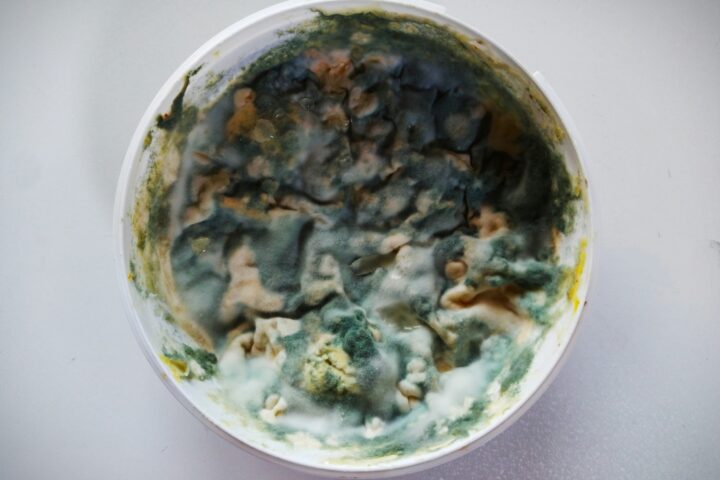
Production: More food with fewer resources
One of the greatest challenges of this century will be to feed an estimated ten billion people in a safe and sustainable manner. To achieve this goal, agriculture needs to become much more productive. Natural resources such as land and water are becoming scarcer and must be protected. In order to "produce more with less", we need new technologies that ensure greater resource efficiency from input through sowing and harvesting to the consumer.
Wednesday, November 24, 2021
The world's population is growing. According to United Nations estimates, almost ten billion people will live on earth by 2050. At the same time, the available fertile land is declining. And we need to save land, because forests and natural soil can store a lot of CO2. Biodiversity areas are also home to countless creatures. This means that agricultural production should be "densified" rather than extensified. Productivity must be increased on smaller areas of land and resource efficiency must be improved. This can only succeed if farmers around the world have a full toolbox of technologies at their disposal. This requires openness to innovations in agricultural research.
Technology for more productivity
Comprehensive resource efficiency is one of the great challenges – comprehensive means efficient use of finance, energy, labour and natural resources. Genome editing is a key technology for achieving higher yields with fewer resources. It starts at the beginning of food production: Breeding high-yielding and robust varieties. Classical breeding methods remain important. After all, this is how we have achieved many varieties that we have grown fond of. But genome editing can improve proven varieties by making them more resistant to drought or heat, for example. This can save scarce water resources. Genome editing can also be a "gamechanger" against pests that are becoming more widespread due to climate change. Plants can be equipped with resistance to certain diseases and harmful organisms. The effect: fewer plants die on the limited land available.
Precision thanks to digitalization
More precision is urgently needed in order to use resources as optimally and efficiently as possible on existing land. That is why digital technologies are also playing an increasingly important role in agriculture. They enable precise farming. GPS-controlled drones and robots apply crop protection products, fertilizer and water only exactly where they are needed. With the help of artificial intelligence and deep learning, research-based agricultural companies are already trying to quickly find new suitable molecules for sustainable crop protection active ingredients. Crop protection products also help to reduce food loss in the field and food waste through spoilage throughout the food chain.
Laboratories and tanks as production facilities
The scarce natural resources will not be enough to feed 10 billion people in a healthy and sustainable way. That is why more and more food manufacturers are currently researching "artificial" meat from the laboratory – so-called "cultured meat". Algae, too, could one day be an important piece of the puzzle in food production. They are rich in nutrients, space-saving and suitable as food for humans and animals. Insects are another alternative source of protein. Vertical farming could become more important for supplying large cities with fresh produce. In general, consumer preferences are changing. Interest in health-promoting foods and dietary supplements is growing. Most of the supplements come from the laboratory for reasons of purity and resource efficiency.
Improve access to vitamins
Around two billion people are in a "micronutrient gap". This means that they have insufficient access to sufficient vitamins and minerals. The EAT Lancet Report therefore estimates that vegetable and fruit production must be doubled by 2050 in order to provide a healthy, balanced diet for the entire world population. Today, only a fraction of the world's population consumes the recommended amounts of fruits and vegetables. In addition to increased fruit and vegetable production, however, dietary supplements and fortified foods will play an increasingly important role. The best example of this is the so-called "Golden Rice". Rice enriched with vitamin A has recently been approved in the Philippines and could in future save millions of children from vitamin A deficiency and the associated blindness or death.
Many of these exemplary solutions require the overcoming of previous thought patterns. "Natural is good, artificial is dangerous" has had its day as the simplest of all narratives. Truly sustainable solutions can certainly come from the laboratory – “lab-based sustainability", in other words.
Resource-saving production in and from the research industry
Alternative fuels from plant waste products save CO2 without competing with food production. Flavours can be created from plastic waste: The circular economy is gaining importance. Wherever it makes sense and is more sustainable, animal raw materials are replaced by plant-based raw materials. For example, fragrance ingredients are created from fermented sugar cane instead of animal origin. The research industry develops and operates its facilities in such a way that the evolving state of safety, health and environmental protection is ensured. It strives to develop and manufacture innovative products that can be produced, transported, used and disposed of in a safer and more environmentally sound manner.
Related articles

Global facts on world food and agriculture
Only thanks to technological progress and modern crop protection will we be able in the future to conserve our resources while feeding a growing population in a healthy and affordable way.

Pesticides in Green Smoothies
After countless recipes for Christmas cookies, festive roasts and cocktails, the advice on losing weight, detoxing and beautifying oneself now takes centre stage. Most of it is sheer nonsense.

Natural Toxins: An Underestimated Risk in Our Food
Safe food cannot be taken for granted. While chemical substances are often the focus of public criticism, reality shows that the greatest risks to food safety are of natural origin. Recent recalls of infant food products illustrate how insidious bacterial toxins or moulds can be.

Herbal Teas: Making You Sick Instead of Slim
Plant protection products are frequently the focus of public criticism. Far less attention is paid to the fact that natural ingredients in teas and dietary supplements are also biologically active and can pose health risks.

